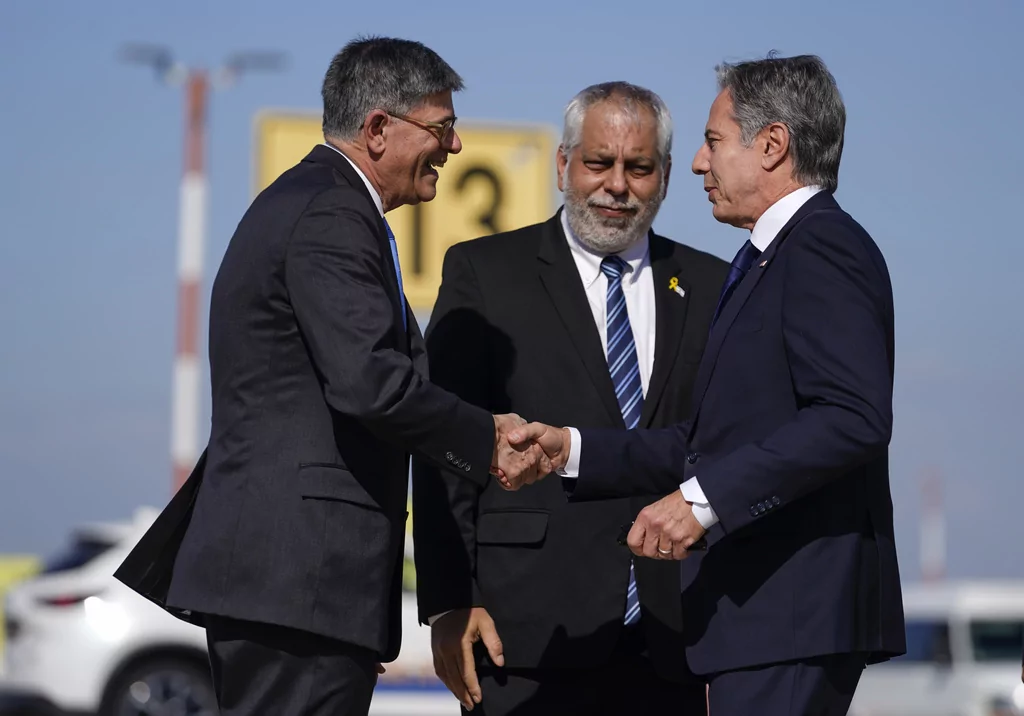
It is Blinken’s 11th trip to the region since the Oct. 7 terrorist attacks that sparked the conflict between Israel and Hamas.
“On my way to Israel and other stops in the Middle East for intensive discussions about the importance of ending the war in Gaza, returning the hostages to their families, and alleviating the suffering of the Palestinian people,” Blinken announced on Monday.
Similar efforts to generate agreements have fallen flat on each previous visit, leading many to wonder how this attempt will prove any different.

“I think Americans expect this State Department to do exactly what they’re doing now, and that’s not a compliment,” said Rep. Tim Burchett (R-TN), the vice chairman of the House Foreign Affairs Subcommittee on Middle East, North Africa, and Central Asia. “I don’t believe Israel takes Secretary Blinken seriously, and I’m afraid it’s too late for a lot of the hostages taken by Hamas.”
President Joe Biden’s administration has said that the assassination of Hamas leader Yahya Sinwar last week, the most recent death in a near-total decapitation of the terrorist group’s leadership, might provide an opportunity to negotiate an end to the war.
“Now is the time to move on,” Biden told reporters in Berlin following the elimination of Sinwar. “Move on, move toward to a ceasefire in Gaza. Make sure that we move in a direction that we’re going to be in a position to make things better for the whole world. It’s time for this war to end and bring these hostages home.”
“This moment gives us an opportunity to finally end the war in Gaza, and it must end such that Israel is secure, the hostages are released, the suffering in Gaza ends, and the Palestinian people can realize their right to dignity, security, freedom, and self-determination,” Vice President Kamala Harris said during a campaign visit to the University of Wisconsin-Milwaukee not long after Sinwar’s death. “It is time for the day after to begin without Hamas in power.”
But over a year into the bloodshed, with dozens of hostages missing and engagements with Hamas terrorists being recorded nearly every day, expectations for Blinken to bring home any meaningful diplomatic victory are low.

“Blinken has to do what so many in the administration constantly have to do for Harris and Biden, which is to go out there and try to clean up the mess of what has been said and done,” said Rep. Brian Mast (R-FL), another member of the Subcommittee on Middle East, North Africa, and Central Asia.
He explained: “Most recently, Kamala Harris went out there and said Israel must answer for the rate of war casualties — which is her simply parroting Hamas talking points.”
Blinken will also be speaking with Israeli officials about the violence erupting from both sides of the Israel-Lebanon border. The Israel Defense Forces invaded southern Lebanon this month in order to neutralize military infrastructure used to fire on northern Israeli towns.
Since then, the IDF fired dozens of precision strikes on Hezbollah facilities throughout Beirut and its surrounding suburbs.
CLICK HERE TO READ MORE FROM THE WASHINGTON EXAMINER
The Biden administration is pushing the Israeli government to consider a recommitment to the tenants of United Nations Security Council Resolution 1701 — a decades-old resolution that aimed to quell hostilities through a U.N.-maintained buffer zone but was never functionally implemented.
Other potential stops on Blinken’s tour of the Middle East include the United Arab Emirates, Saudi Arabia, Jordan, and Qatar, but no firm itinerary has been released.






